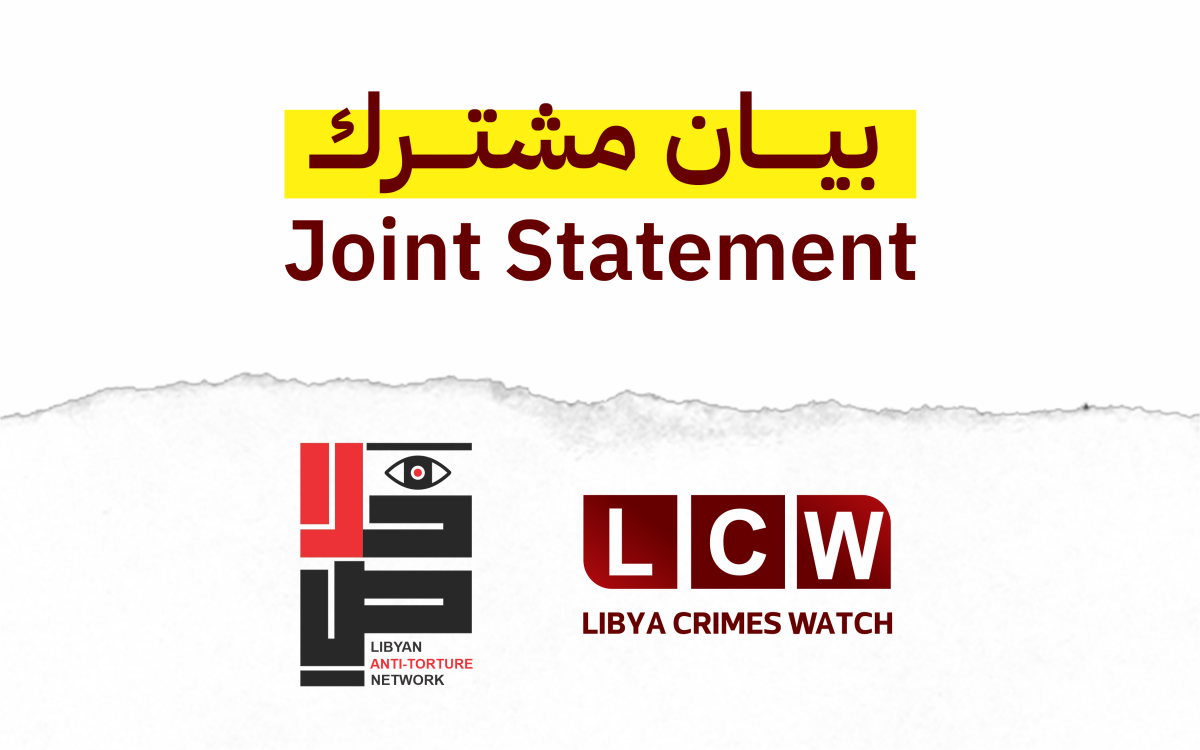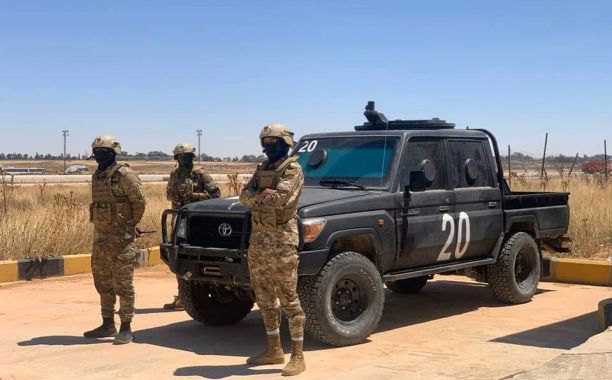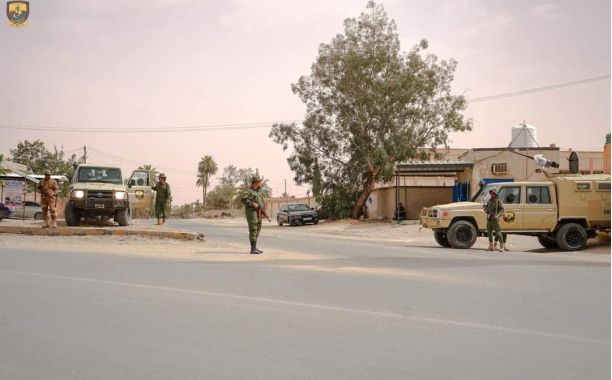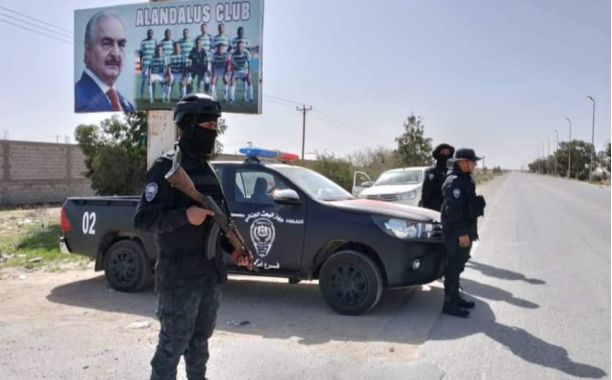Joint statement: Impact of Restricted Civic Space in Libya on Documentation and Support for Victims of Torture

Tunis, Tunisia – On this International Day in Support of Victims of Torture, the World Organisation Against Torture (OMCT) and the Libyan Anti-torture Network (LAN) condemn the systematic repression perpetrated by the eastern and western authorities against civil society in Libya. Since 2021, such campaigns have been significantly impeding civil activities and suppressing the active participation and presence of human rights defenders. Repressive policies and laws impose unjust restrictions, enabling armed groups and security agencies to impose their domination over civilians[1]. Libyan authorities have further curtailed the scope of cooperation with non-governmental organizations, imposing their interference and surveillance on humanitarian and human rights activities, thereby obstructing the documentation of torture cases and hindering the provision of support to survivors. Libyan Civil society faces numerous restrictions and reprisal by security authorities, hindering independent operations.
In Libya, authorities have neglected their obligations towards both citizens and migrants, failing to ensure the protection of all individuals within Libya’s jurisdiction. State authorities have disregarded the fundamental human rights as stipulated in the international treaties that Libya had ratified.[2] Libyan civil society organizations stepped in to meet the needs of vulnerable groups affected by armed conflict and actively advocated for human rights, and provided multifaceted support to victims, including social, psychological, and legal assistance. However, systematic criminalization, intimidation, reprisals, and violence are recurring experiences for civil society activists and human rights defenders in Libya. Persistent threats to activists’ safety include arbitrary arrests, enforced disappearances, and defamation through hate speech, incitement, and campaigns propagating accusations of betrayal. This hinders the operations of civil society organizations and impedes the monitoring and documentation of human rights violations, including instances of torture and other forms of degrading treatment.
In armed conflicts, torture survivors face limited access to justice, particularly when the perpetrators have infiltrated the State’s security and military forces, as is the case in Libya[3]. The prevalence of such practices within and outside detention facilities allowed impunity to persist. Libyan authorities maintain a stance of denial regarding these violations and overlook the importance of carrying out comprehensive investigations along with ensuring the observance of fair trials. Instead, the authorities resort to intimidation and reprisals against human rights defenders, silencing victims and impeding their access to justice.
The recent United Nations Security Council statement highlighted the need for a safe environment for civil society in Libya. However, the Human Rights Council resolution frustratingly overlooked the proposed reforms by Libyan civil society, which called for international pressure on the Libyan State to support the independence of civil society and respect and protect human rights defenders. The HRC resolution failed to acknowledge that the Libyan security agencies, empowered by arbitrary measures and laws, now have the legitimacy to suppress freedom of assembly, expression, and the formation of civil institutions. Additionally, the statement neglected the importance of safeguarding civil society activists who document war crimes and torture.
Securing a safe environment and promoting the independence of civil society in Libya is vital for establishing a democratic state. Civil society plays a crucial role in monitoring compliance with international obligations, fostering respect for freedoms and human rights, and establishing the rule of law. Maintaining the independence of Libyan civil society from government interference is essential for providing support to victims of torture and their families, especially amid state-perpetrated abuse.
OMCT and LAN urge the Libyan authorities to:
- Ensure legal protection and full independence of Libyan civil society through legislation, preventing government control and enabling documentation of violations to achieve comprehensive protection for victims.
- Implement legislative reforms addressing provisions in the Libyan Penal Code and Anti-Cybercrime Law that may lead to the prosecution and punishment of human rights defenders.
- Protect human rights defenders by halting means and campaigns to obstruct civil society working to document cases of torture and war crimes in the absence of monitoring mechanisms within Libya and ensuring that comprehensive and fair investigations into violations of international humanitarian and human rights law are accelerated to eliminate impunity.
- Halt the imposition of repeated inconsistent requests to register civilian institutions aimed at disrupting civil work and humanitarian services in Libya.
- Provide and facilitate assistance and support to protect victims of torture and allow access of civil society to victims inside and outside detention centres.
OMCT and LAN urge the international community and the Human Rights Council to:
- Pressure the Libyan authorities to address the causes of arbitrary practices and laws against civil society organizations and human rights defenders in Libya and to emphasize in their dialogue with the Libyan State the importance of holding perpetrators accountable.
- Continue to emphasize the need for civil society’s independence from the Government to provide the capacity to document war crimes and torture crimes, the systematic practice of which may amount to crimes against humanity in Libya.
- The United Nations and international mechanisms should heed civil society’s proposals aimed at achieving peace and democratization in accordance with international norms and treaties and with human rights law. These are the liberties and rights for which the international community strives to affirm respect and ensure compliance with its binding norms.
[1] “In the context of redress, civil society organizations play a crucial role in safeguarding the rights of victims of torture and other cruel, inhuman or degrading treatment or punishment by providing them medical and psychosocial support as well as legal and social services“, said Suzanne Jabbour, Chair of the Subcommittee on the Prevention of Torture.
[2] Treaties ratified by Libya: The International Covenant on Civil and Political Rights, the International Covenant on Economic, Social and Cultural Rights, the Convention against Torture and Other Cruel, Inhuman or Degrading Treatment or Punishment, the African Charter on Human and Peoples’ Rights.
[3] Most armed groups in Libya have been integrated into the security sector and army under the Ministry of Interior and the Ministry of Defense. / Libya’s hybrid armed groups dilemma, Bookings – Jan 27, 2023



